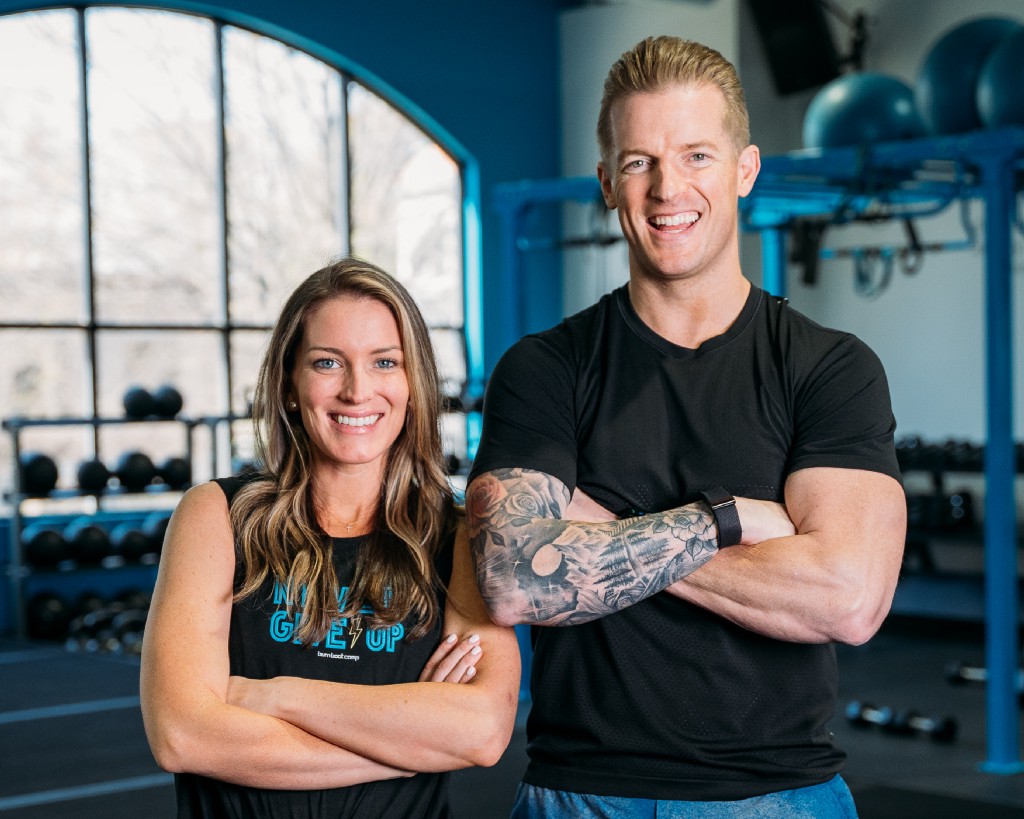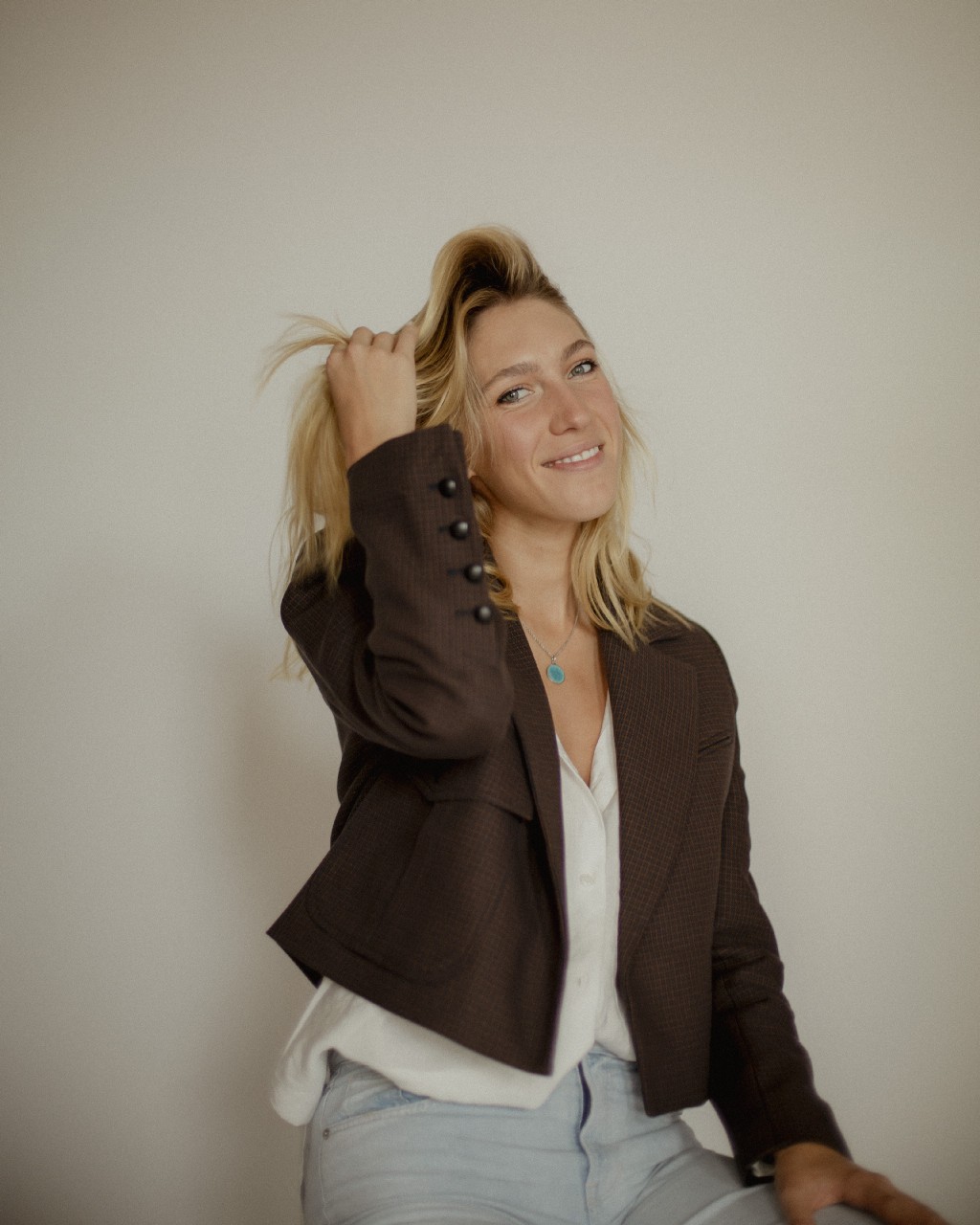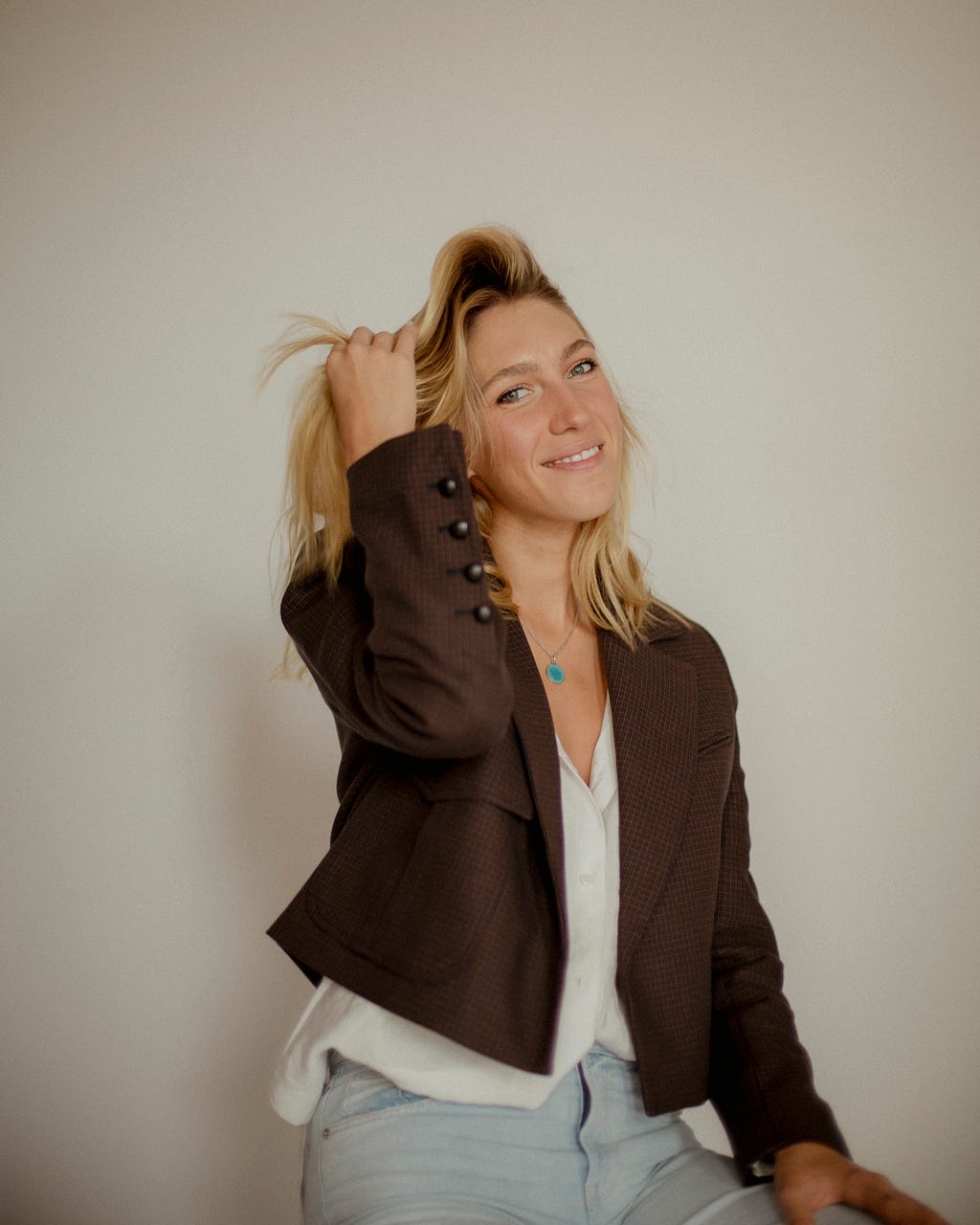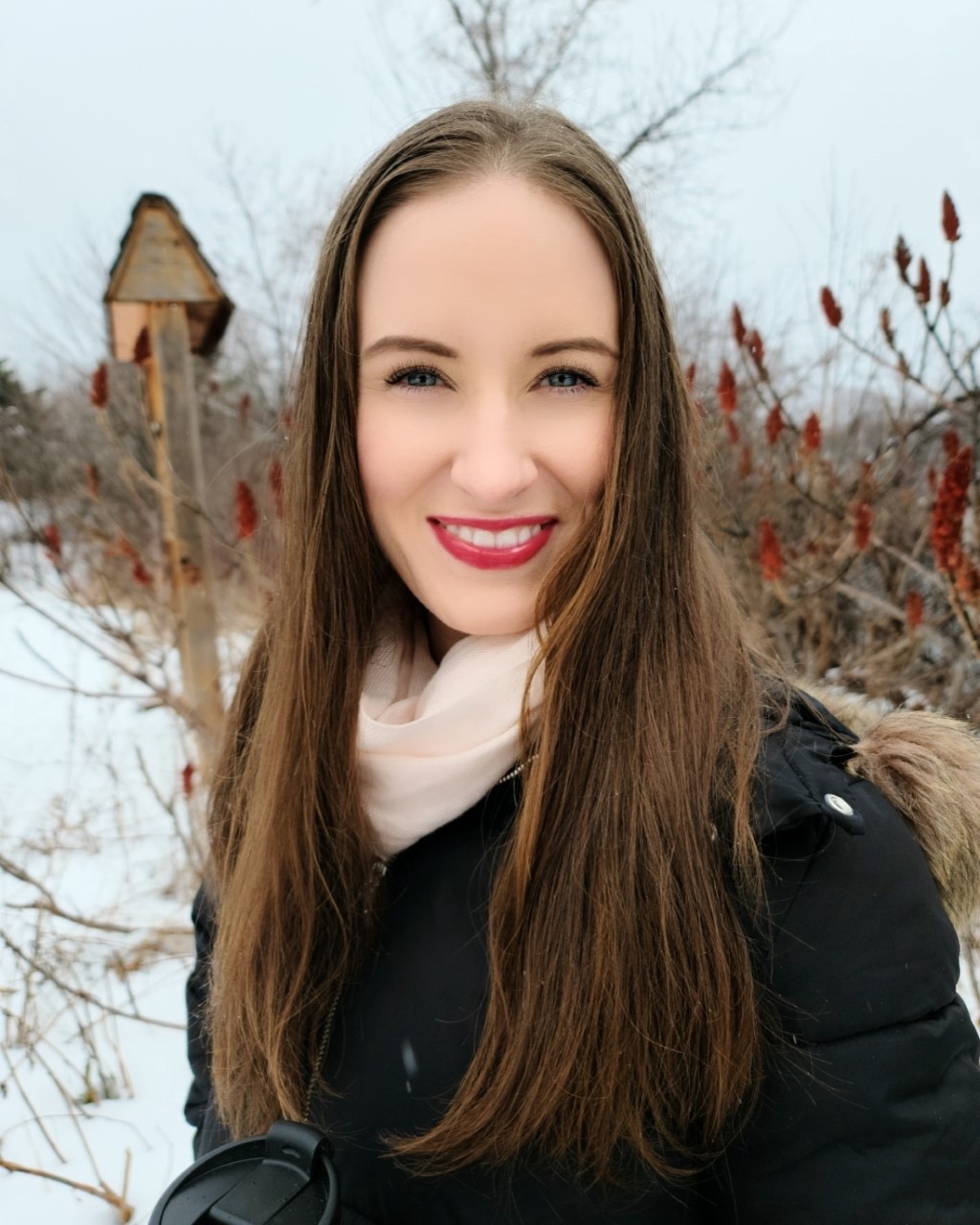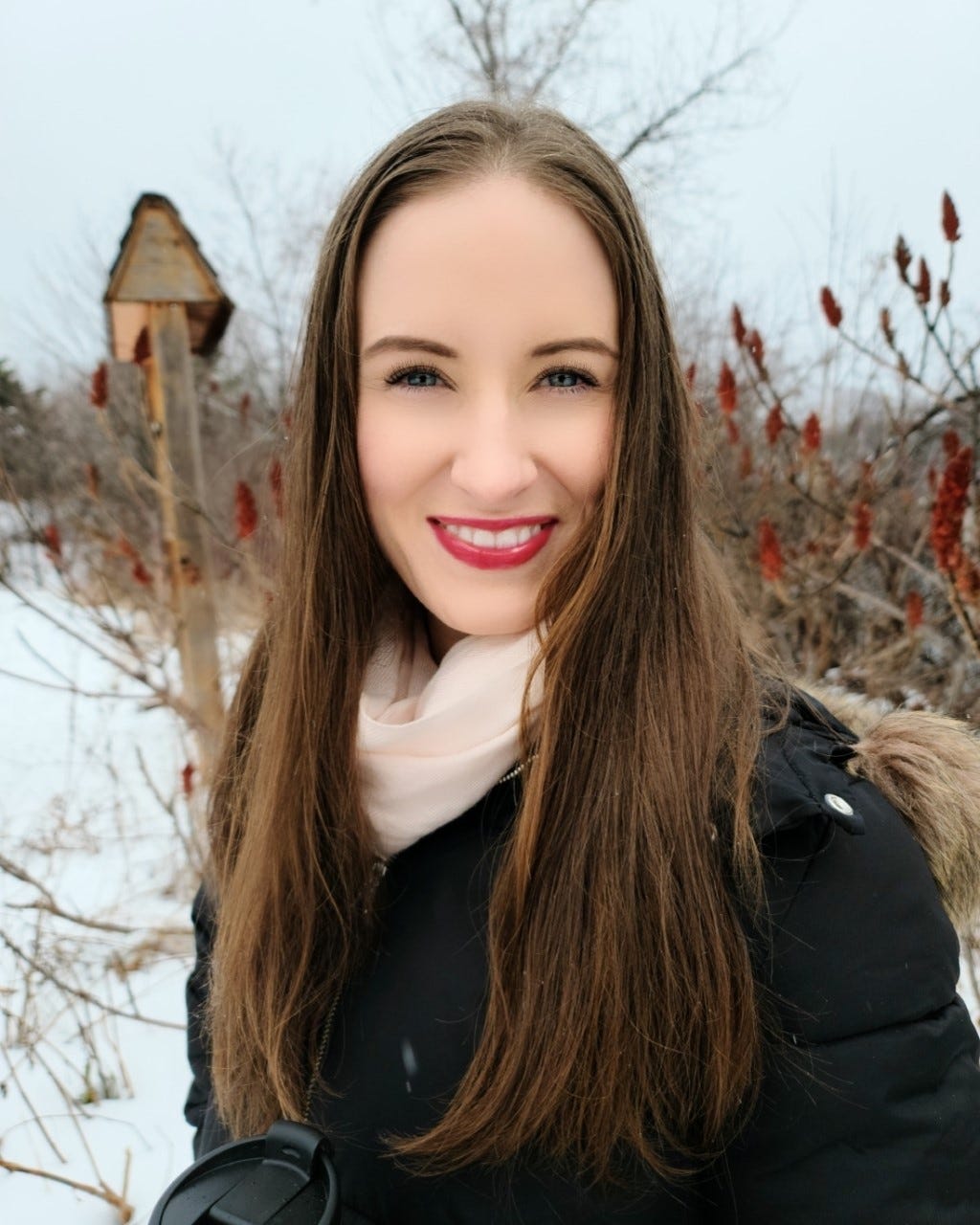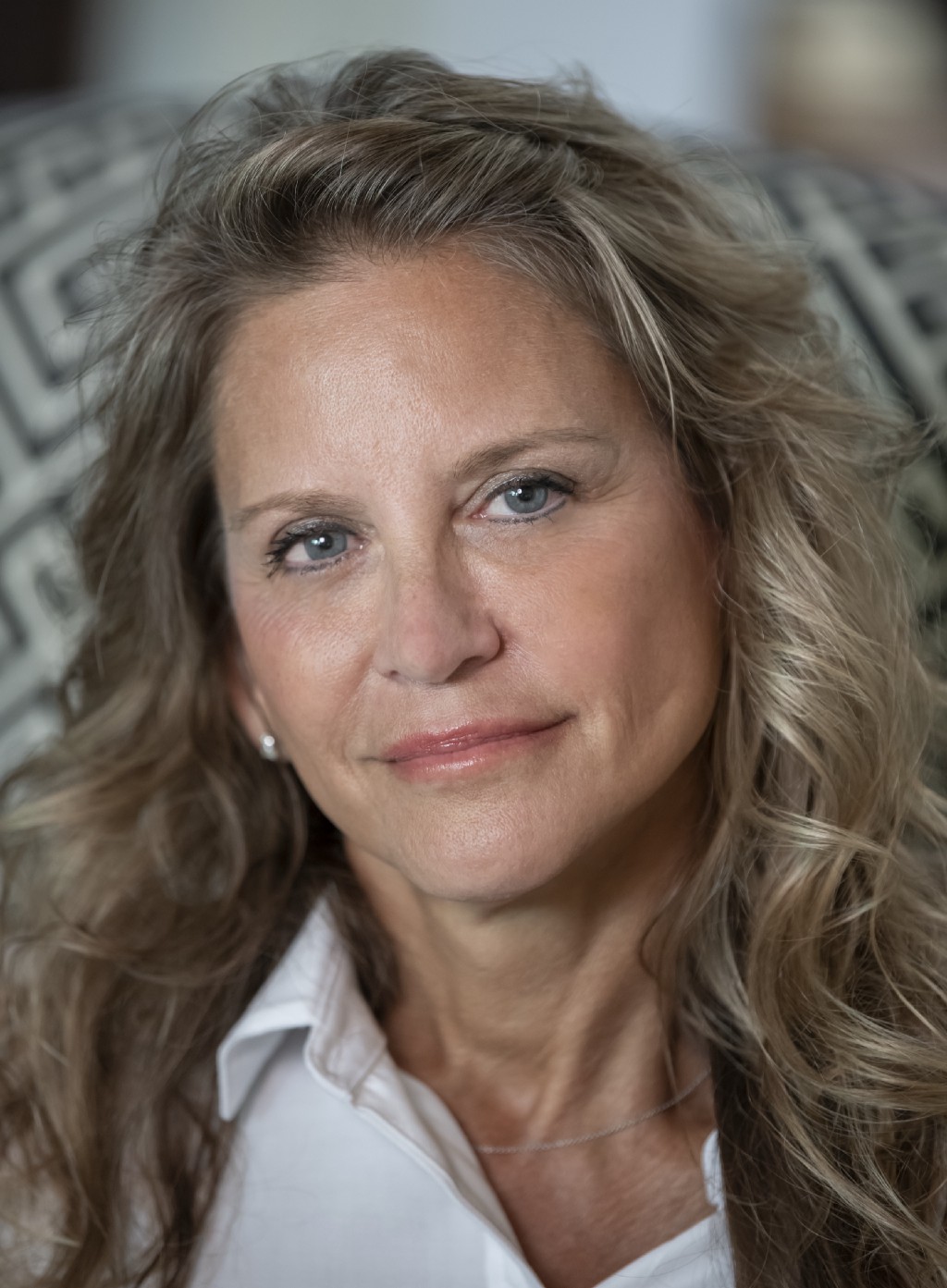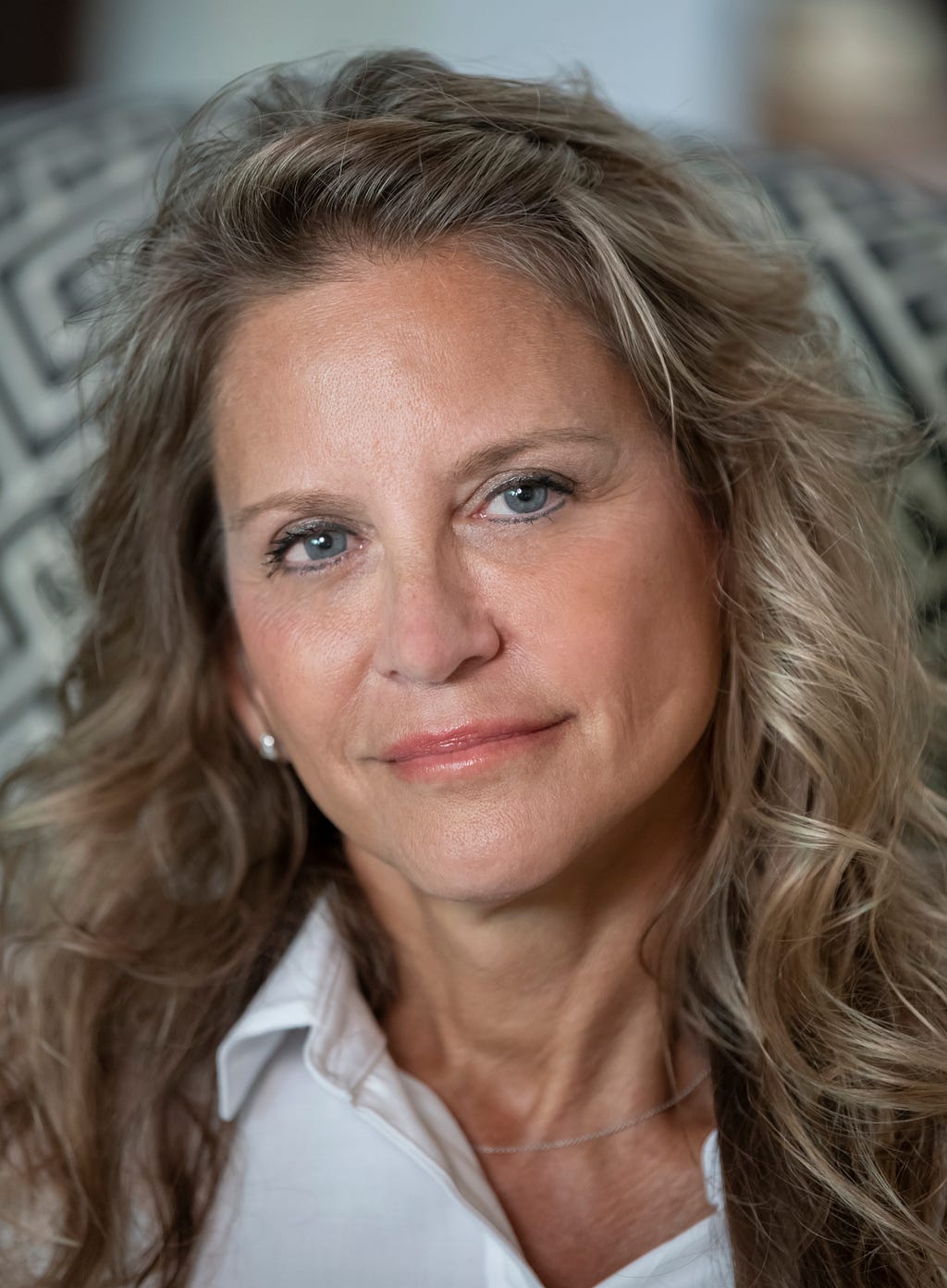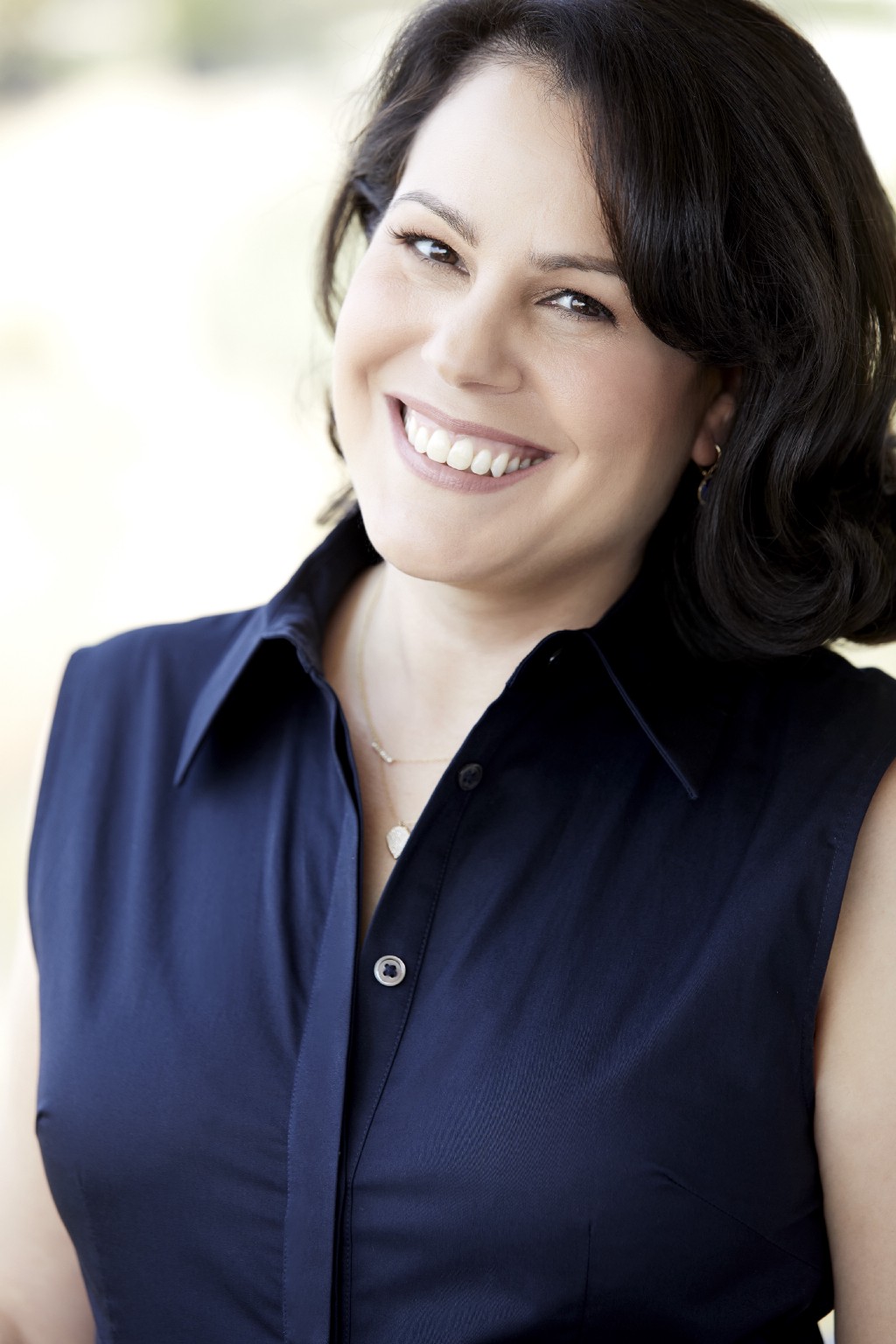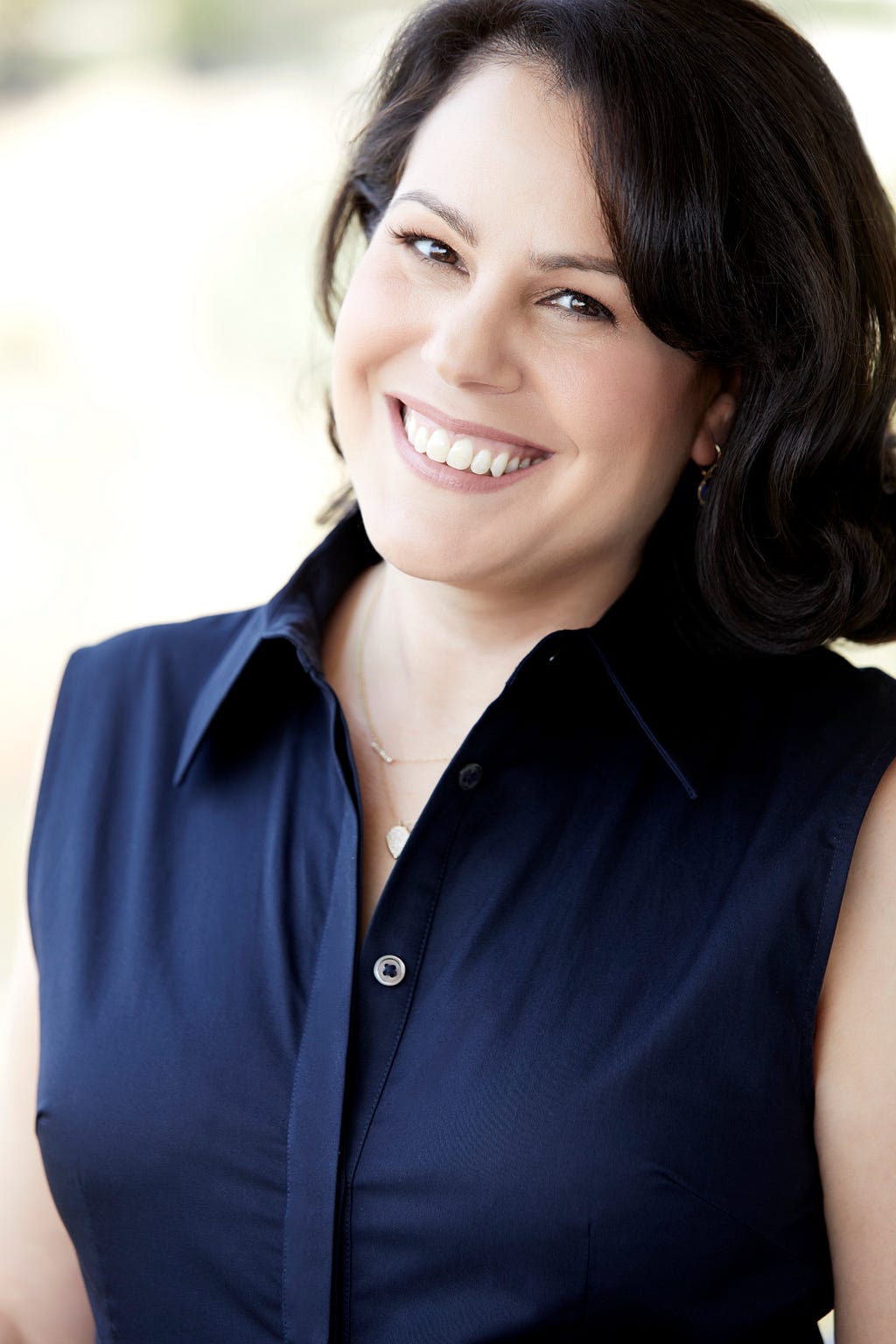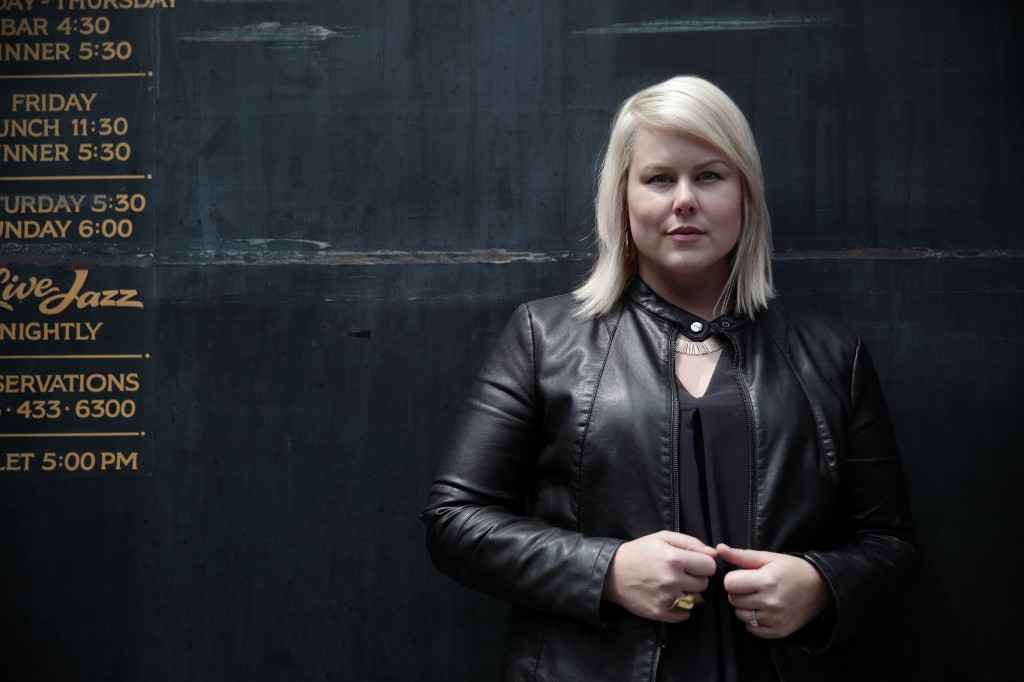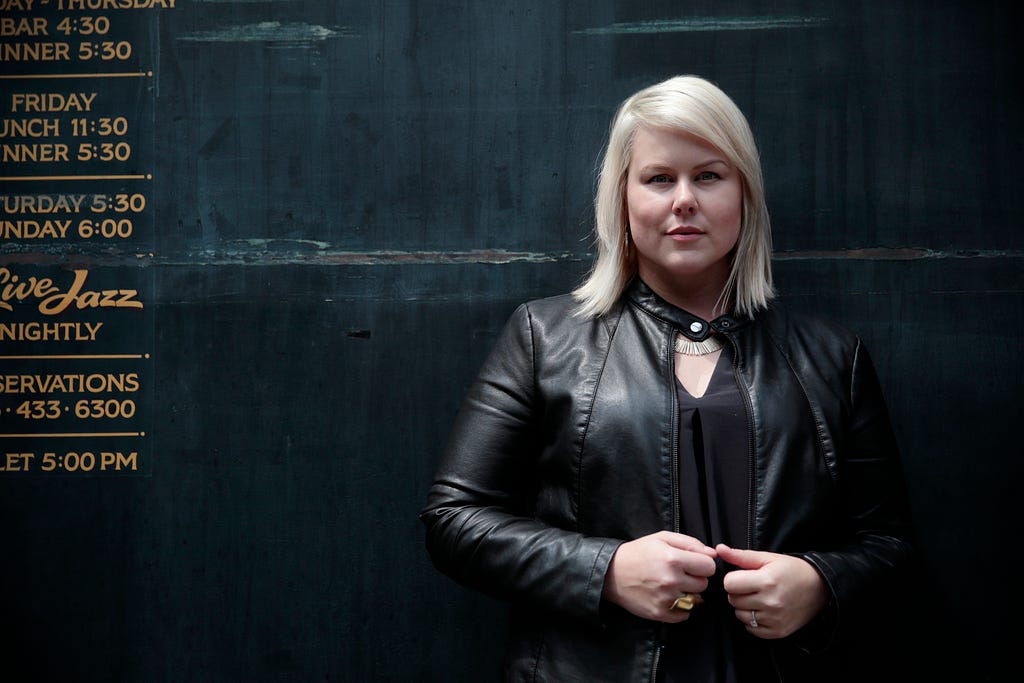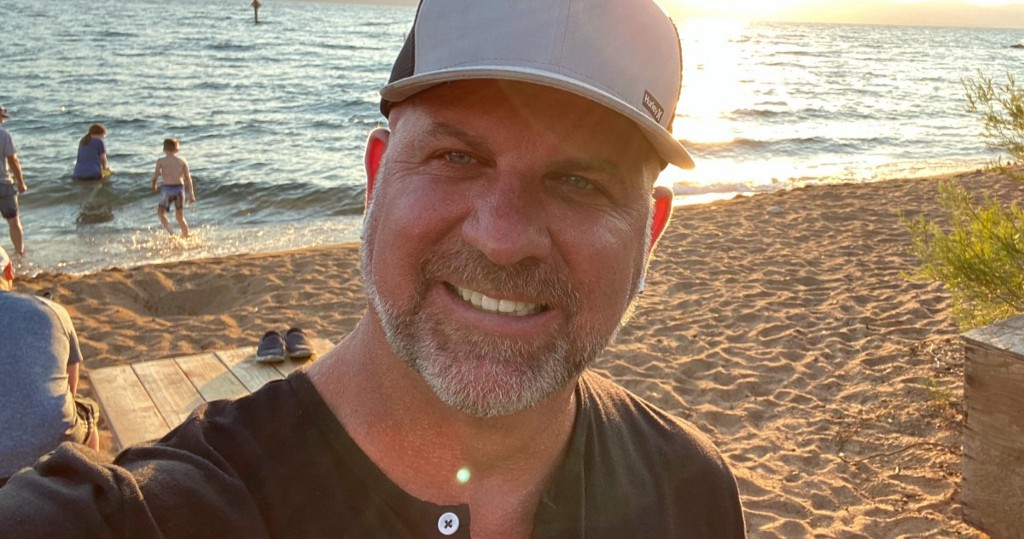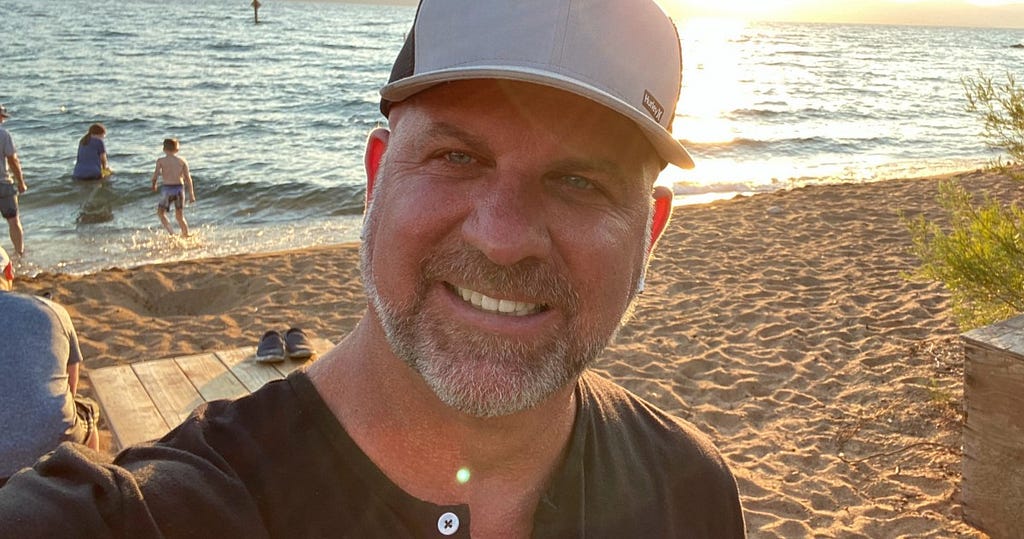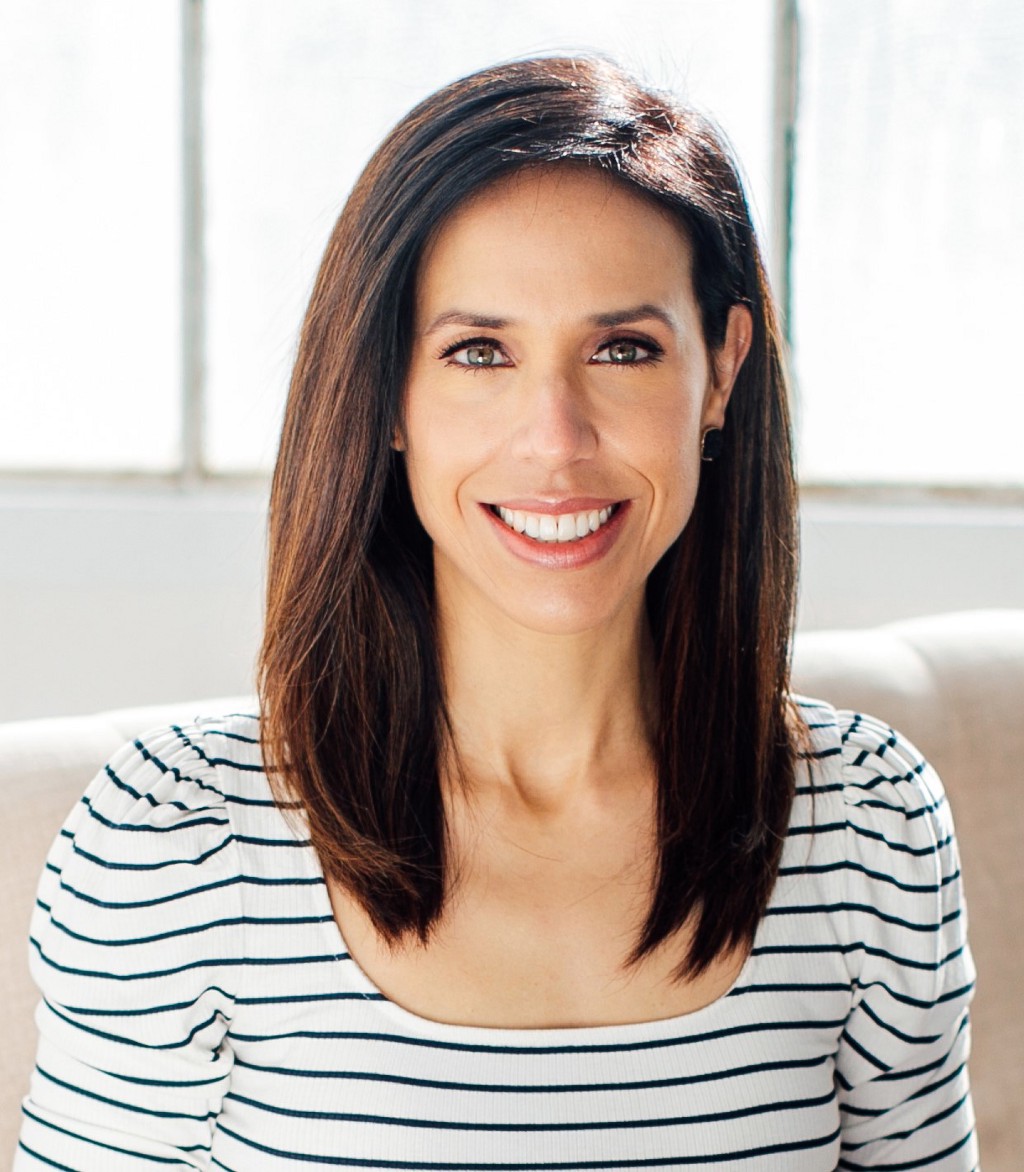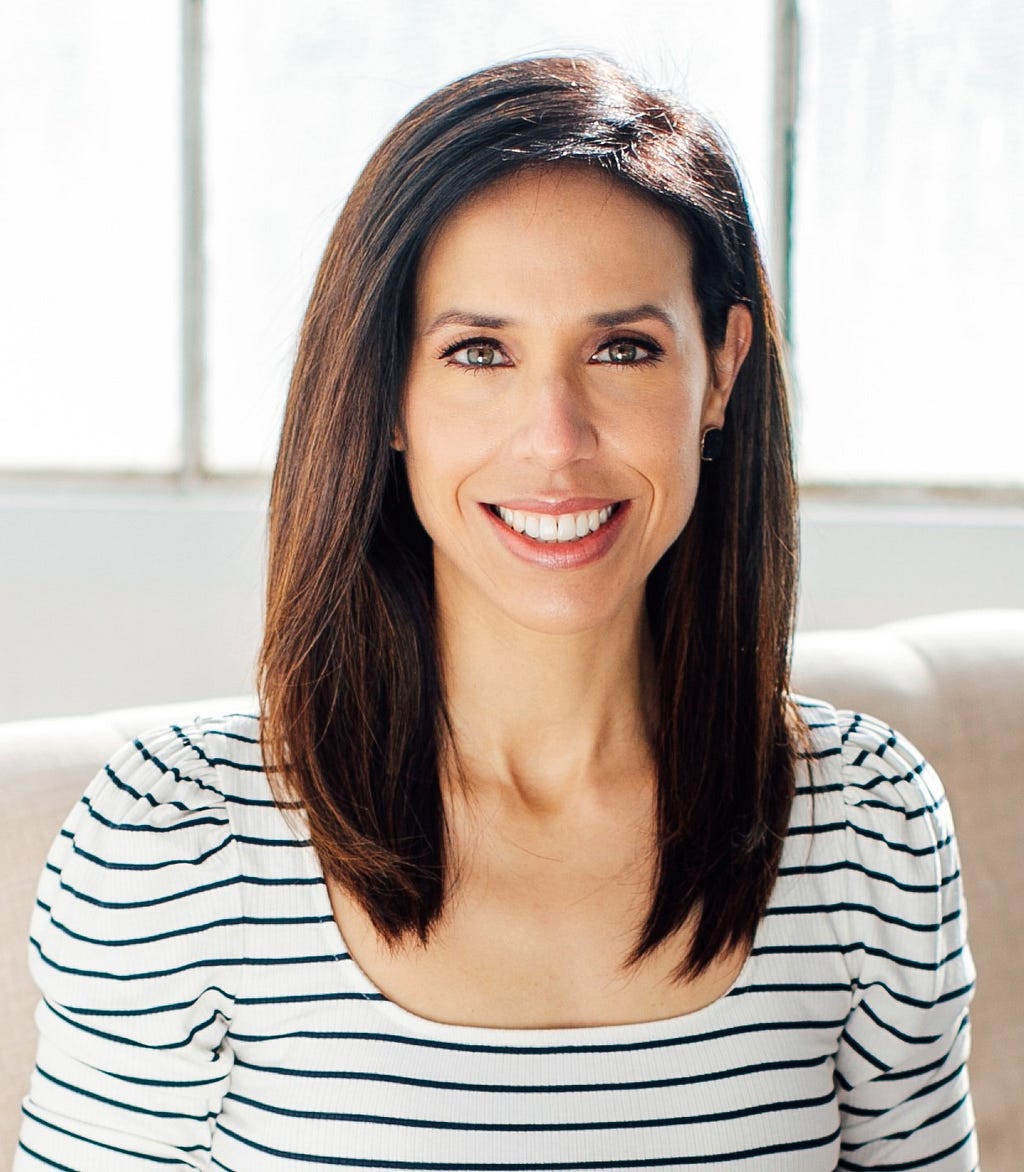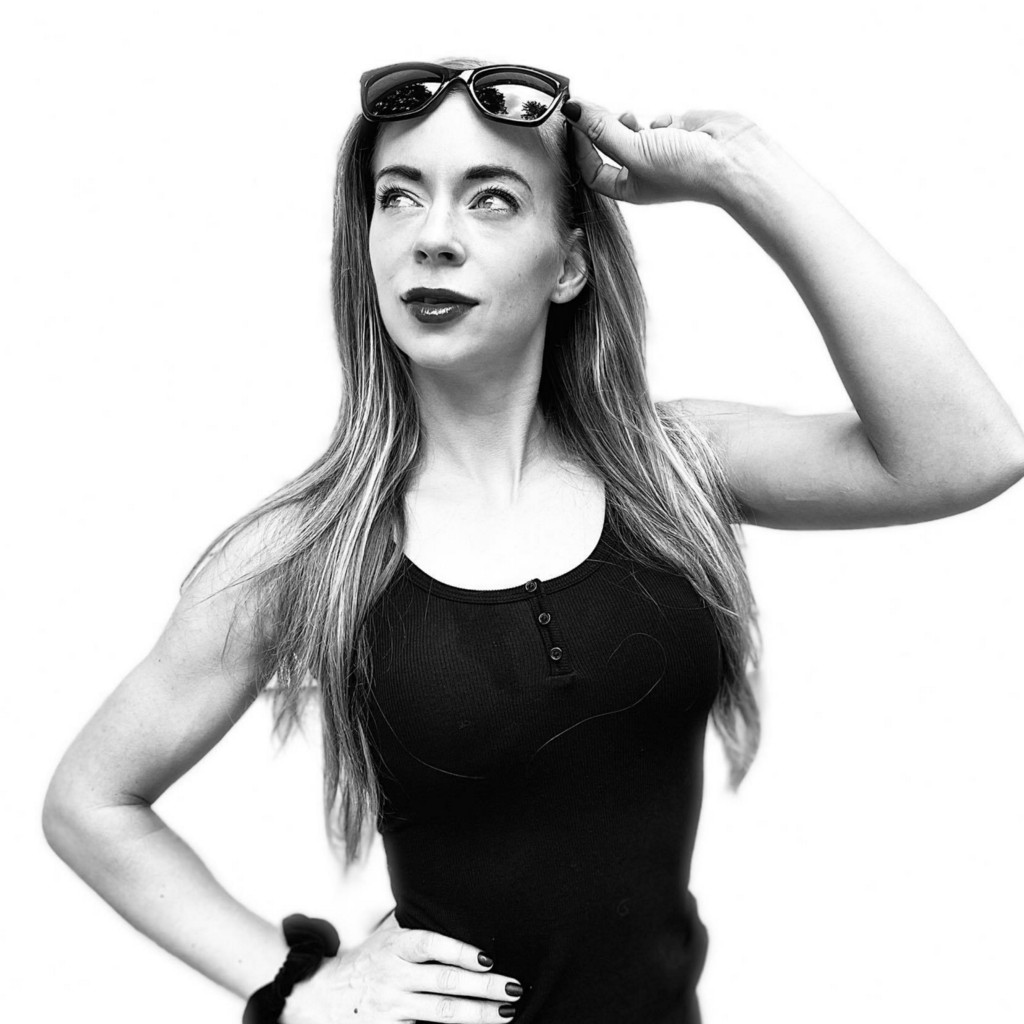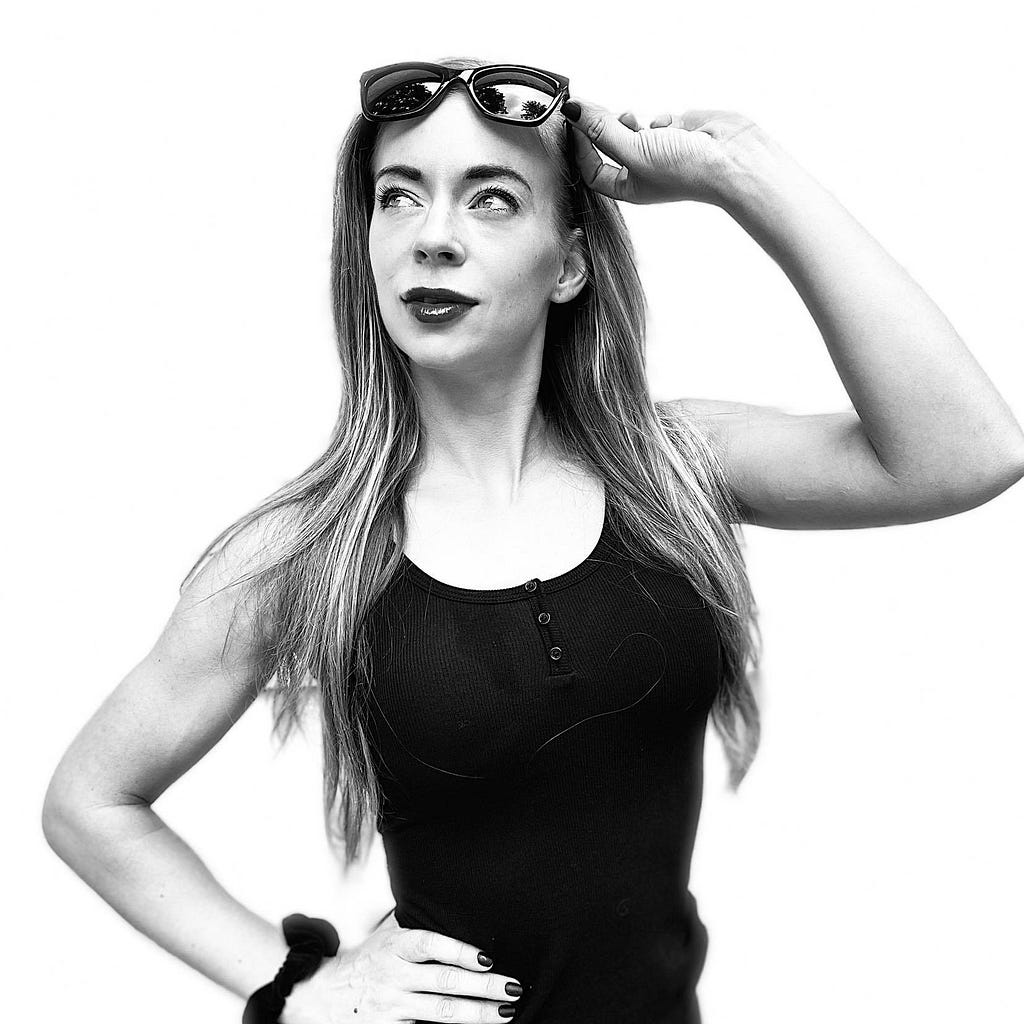An Interview With Candice Georgiadis
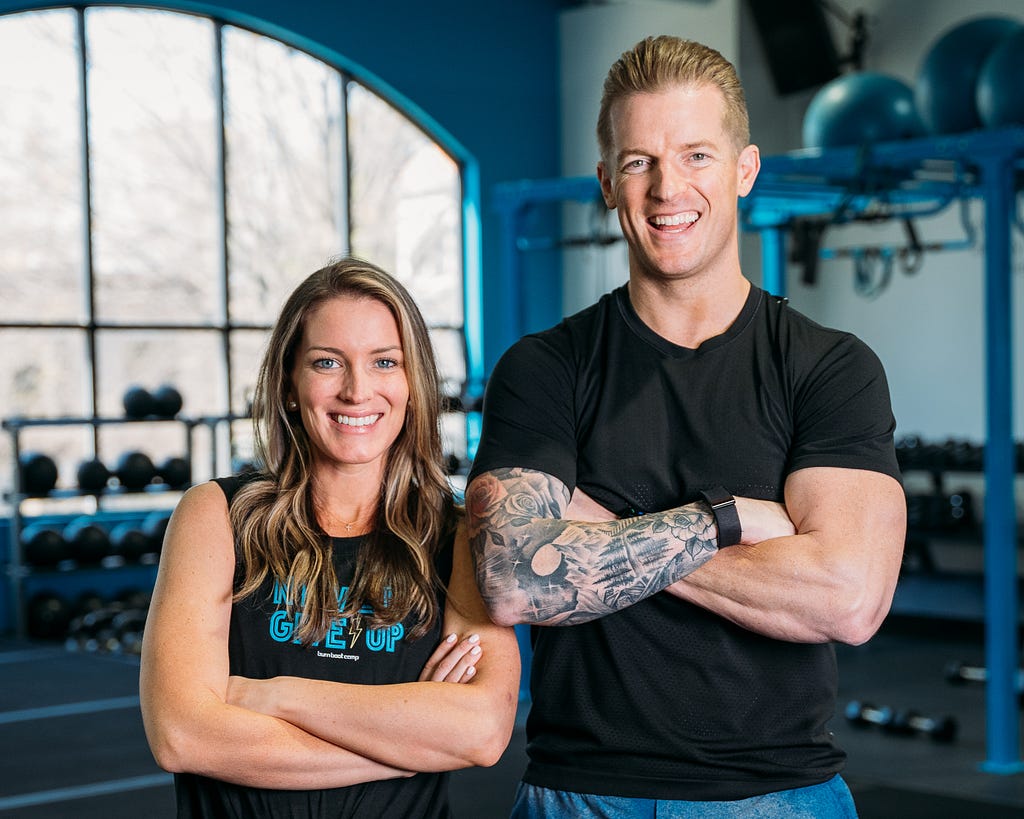
Saving the best for last on purpose! We do everything 50/50 and it’s important to us to divide and conquer, especially with the kids. We go 50/50 in all of our business decisions we make, so why would parenting be any different? This isn’t 50/50 in responsibility, but in willingness. Do I actually change as many diapers as Morgan in a diaper-to-diaper scale? No, but I’m willing to.
As a part of our series about lessons from Thriving Power Couples, I had the pleasure of interviewing Devan and Morgan Kline.
Devan and Morgan Kline are the co-founders of Burn Boot Camp, one of the nation’s fastest growing group fitness brands with over 300 open gyms in 39 states and an aggressive pipeline of 55 gyms to open by the end of 2022. Founded in 2012 by husband-wife duo Devan and Morgan, who now have three children of their own, Burn Boot Camp was created as a tool to inspire mental, emotional, and physical transformation via a passionate, supportive fitness community with the overall aim of building confidence.
Thank you so much for doing this with us! Can you tell us a story about what brought you two to your respective career paths?
Morgan: When we first started Burn Boot Camp, I was working full time at the Kellogg Company while working with Devan in the morning and at night with Burn Boot Camp. I was finding fulfillment in seeing people smile, making people feel happier when they walked out than when they walked in and realized I wanted to start impacting people more — full time, all the time, because it was impacting me more, too. At this point I went through my own transformation by quitting my job and committing myself to fitness full time.
Devan: My first major success was becoming a professional baseball player, although this was also my first monumental failure. After working years to get to where I was, I was released from the team. I felt defeated. I had a moment of weakness and convinced myself I had failed. As I was sitting there with my head in my hands, feeling defeated, my girlfriend, now wife and business partner, Morgan, called me and told me to keep moving. Ever since that day, her words have stuck with me and have become the tagline for more life, and the drive to take my passion for building community and fitness to found Burn Boot Camp.
Can you share the most interesting story that happened to you since you two got married?
Morgan and Devan: We were having our 3rd baby, closing all of our gyms, live streaming in our house with employees who were living with us for lockdown. When we shut down our gyms — we weren’t going to leave members hanging and believed they needed us then more than ever. Morgan, 8 months pregnant, was working out with me in 80-degree livestream studio that we set up at my house. Our entire family turned into trainers, even our daughter Cameron, was streaming kids’ camps for our children of Burn Nation.
Can you share a story about the funniest mistake you made when you were first starting? an you tell us what lesson you learned from that?
Morgan and Devan: Devan created a referral rewards program that incentivized our current members to bring friends into the gym to try us out. If their friend joined, they got 50% off their next month’s membership. Devan would write them a handwritten check and pass them out in camp. One time he was promoting the program and posted a stack of checks on social media, not realizing that he was giving away our bank information (routing/checking/etc.) to the world! He quickly had Morgan and several members calling him to tell him to take it down!! Lesson learned for him to not show all of our private information online.
What do you think makes your company stand out? Can you share a story?
Morgan and Devan: Burn Boot Camp is all about community. When you step into one of our gyms, you become a part of #BurnNation. With our supportive, inspiring, and motivating community, you’ll have all you need to achieve greatness, and we’re proud that this sense of community has been authentically translated across our franchise partner network.
In the parking lot days, we had 150 women at an outdoor Saturday camp in the 95-degree heat. We had a very hard leg workout — and we approached the finisher with 150 sweaty and tired people. We lined up and began sprints and we were working so hard that a few members’ legs were so tired that they gave out and they fell down. Scraping elbows and knees — one by one, over 10 fell down. What happened next solidified who we are as a brand. Members who finished the sprints were sprinting back to help those who fell. They were literally carrying them across the finish line. It was that moment in time where Morgan and I knew we had something special.
Are you working on any exciting new projects now? How do you think that will help people?
Devan: We’re thrilled by Burn Boot Camp’s rapid growth — we currently have over 300 gyms open in 39 states and should have as many as over 50 additional gyms open by the end of the year. We also recently had our 500th franchise signing, a super exciting milestone for our team. Looking ahead, we plan to further foster connection and offer more benefits to our community with new digital offerings, continuing to offer our members support throughout every element of their lives.
Morgan: Echoing Devan, we’re looking forward to continuing to empower our community and our members by bringing back some of our annual challenges and initiatives such as the Be Their Muscle campaign in July, which has raised over a million dollars for the Muscular Dystrophy Association (MDA).
What advice would you give to other CEOs or founders to help their employees to thrive?
Morgan: There will always be problems and setbacks; in life and in business and in fitness. My younger self may have thought that these problems would go away, but in reality, problems will always be there and there will always be challenges. The problems just get better and better and sometimes harder, but they never go away. Tackle your day, knowing there will be problems, and shift your mindset to find solutions to create for yourself and people around you.
Devan: Having a positive and progressive attitude, communicating a vision effectively, recognizing small victories, and being empathetic are essential to being a strong leader and ensuring your employees feel empowered to do their best work possible. We’ve made it our priority to replicate and instill these traits from the top-down as we work with our Franchise Partners nationwide to ensure they are adopting the same approach with their on-the-ground teams and trainers.
How do you define “Leadership”?
Morgan: Leadership to me is being the best version of yourself so you can be the strongest leader for your company/team. Life is all about balance, and I know I need to put my family first in order to feel confident showing up for my career every day. Leadership is also about teamwork and delegating to people that love our mission and what they’re doing. As a leader, I naturally want to hold onto every little thing, but the biggest mistake is that people want to do things by themselves, for themselves, alone.
Devan: Leadership to me means maximizing your time to the best of your abilities, using every free minute to better yourself, to better your team and organization. In addition, I am all about connection, and aim to fully connect whenever I have the opportunity to visit our franchise partners and on a day-to-day basis at our home office.
None of us are able to achieve success without some help along the way. Is there a particular person who you are grateful towards who helped get you to where you are? Can you share a story about that?
Morgan: Our business, Burn Boot Camp, wouldn’t never have been possible without my husband, Devan Kline. In addition, I’ve always been inspired by my mom and sister. I lost my dad when I was 5 years old, and my mom became a single mom overnight. I watched my mom’s work ethic as she worked so hard for our family and always showed up with a smile on her face. She became my motivation, and the strength and courage she had inspires me.
Devan: Anytime I am asked the question, “who inspired you along the way?”, Morgan is the only person I can give that title to. Mostly, because my weaknesses are her strengths. Partly, because she calls me on my bullshit when no one else will. I think the definition of marriage is to conspire together to compete and make each other stronger. She always believed in my dream to go to the MLB and play under the bright lights. But my dreams were absolutely crushed when I finally got released in 2011 from the San Francisco Giants Baseball Organization. Something I worked for my entire life was gone in one moment and the worst part was I didn’t even see it coming. But Morgan was there and gave me some of the best advice I’ve ever received. She said, “Look where you’ve come from, look at what you have accomplished, and use this to propel yourself. You just have to keep moving babe.”
How have you used your success to bring goodness to the world?
Morgan: I found my life’s calling in founding Burn Boot Camp with Devan as it allows me to fulfill my passion for positively impacting other people’s lives. As a mom with a full-time career, I learned first-hand the pressures that many women have to ‘do it all’ and how overwhelming that pressure can be. My goal at Burn Boot Camp is to support our members and debunk the weight-loss narrative that permeates the fitness industry, encouraging women that they are beautiful just the way they are. You can still have goals to lose weight or goals to be healthier in other areas of your life, but we want to instill confidence first.
Devan: Our community is unmatched, and it has been so rewarding to see how we’ve been able to scale our hometown community out of parking lots when we first started, to a nationwide network of franchise partners. It has been also great to lean into community driven initiatives across our network with programs like the Be Their Muscle campaign that benefits the Muscular Dystrophy Association (MDA), which brings our community together even more to support an incredible initiative.
What are the “5 Things You Need To Thrive As A Couple”? Please share a story or example for each.
Morgan and Devan:
Number 1: We believe power couples are great communicators. Communication with each other is super crucial!
Number 2: Don’t disagree with each other in front of other people. Maintain cohesiveness! People need leaders through tough times, and you can’t be the turbulent ones, especially if you are owning a business.
Number 3: Don’t have expectations of one another that are going to hinder your happiness. That way, your expectation isn’t carrying your happiness. You should have expectations for yourself, to be accountable for things, but don’t tie it to your happiness. It’s key as we’re talking about a power couple. We are individuals first, that come together to create the power couple.
Number 4: You have to be intentional about carving out time to be husband and wife. Make sure you make your relationship a priority. Date nights, or the time we get to travel with each other and have one on one time outside of our normal setting, that’s where some of our great ideas come from. That’s where we can dream and make wishes about ourselves and our families.
Number 5: Saving the best for last on purpose! We do everything 50/50 and it’s important to us to divide and conquer, especially with the kids. We go 50/50 in all of our business decisions we make, so why would parenting be any different? This isn’t 50/50 in responsibility, but in willingness. Do I actually change as many diapers as Morgan in a diaper-to-diaper scale? No, but I’m willing to!
You are people of great influence. If you could inspire a movement that would bring the most amount of good to the most amount of people, what would that be?
Morgan and Devan: I would love to see a shift in how the fitness industry defines success as it looks so different for everyone — it could be defined by weight loss, finding time for themselves as they balance work and family life, having more confidence, or so many other things! People don’t need to look a certain way to be healthy and fit, and we encourage this mentality by having no mirrors in any of our gyms. There is so much pressure on people, particularly mothers, who are trying to do it all, and our aim is to have Burn Boot Camp be a safe place where people put themselves first and leave feeling better than when they walk in the door.
Can you please give us your favorite “Life Lesson Quote”? Can you share how that was relevant to you in your life?
Morgan and Devan:
“Success is never owned, it is rented, and the rent is due every day.” — Rory Vaden. This quote reminds me that no matter what, I need to put in the work every day. It inspires me not to have a “I made it” mentality. Success is not something that is handed out or given to anyone, it must be earned. The great thing is when you know you’ve put in all the hard work, it makes the success much sweeter!
We are very blessed that some of the biggest names in Business, VC funding, Sports, and Entertainment read this column. Is there a person in the world, or in the US with whom you would love to have a private breakfast or lunch with, and why?
Morgan: Sarah Blakely (Spanx Founder) is someone I look up to in business. She gives back and she’s doing the right thing, which I find super inspiring.
Devan: If I could sit down with anyone and pick their brain about anything it would either be Mark Cuban or Elon Musk. I would love to own the San Francisco Giants one day and Mark would be a great person to talk to. I think the mission to be a multiplanetary species is exciting as well and I’d want to ask tons of questions around that to Elon.
Thank you so much for joining us. This was very inspirational.
Lessons from a Thriving Power Couple, With Devan and Morgan Kline Of Burn Boot Camp was originally published in Authority Magazine on Medium, where people are continuing the conversation by highlighting and responding to this story.


